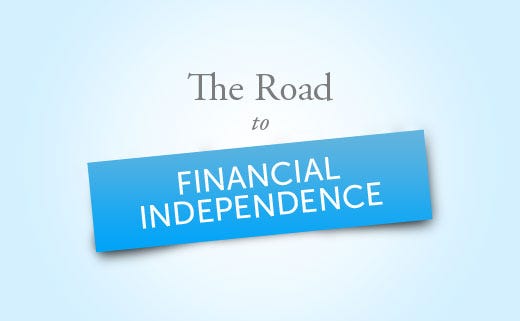How to Master Money and Financial Independence
 Financial literacy is the cornerstone of personal development and economic stability. In today's fast-paced and ever-changing economic environment, understanding financial principles is more crucial than ever. Whether you are just starting your career, planning for retirement, or somewhere in between, a solid grasp of financial concepts can significantly impact your quality of life. This comprehensive guide explores the essential components of financial literacy, offering insights and strategies to build a robust financial foundation.
Financial literacy is the cornerstone of personal development and economic stability. In today's fast-paced and ever-changing economic environment, understanding financial principles is more crucial than ever. Whether you are just starting your career, planning for retirement, or somewhere in between, a solid grasp of financial concepts can significantly impact your quality of life. This comprehensive guide explores the essential components of financial literacy, offering insights and strategies to build a robust financial foundation.
The Importance of Financial Literacy
Financial literacy involves the ability to understand and apply various financial skills, including personal financial management, budgeting, and investing. It’s about knowing how money works and using that knowledge to make informed decisions. Here’s why financial literacy is indispensable:
- Financial literacy empowers individuals to make informed and effective decisions regarding their financial resources. It provides control over financial situations, reducing stress and enhancing confidence.
- Understanding financial principles helps in creating a secure economic future. It enables people to build savings, avoid debt traps, and invest wisely.
- Financially literate individuals can manage their money more effectively, leading to a higher standard of living. They are better prepared for emergencies and more capable of achieving their financial goals.
- Financial literacy contributes to building generational wealth. Educated individuals can pass on knowledge and habits to their children, breaking the cycle of poverty and fostering long-term economic health.
Core Components of Financial Literacy
To build a strong foundation in financial literacy, one must understand and master several key components:
Budgeting: The bedrock of financial planning, budgeting involves creating a plan for how to spend and save money. A well-structured budget helps track income and expenses, ensuring that spending aligns with financial goals.
Saving and Investing: Saving involves setting aside a portion of income for future needs, while investing means putting money into financial products to generate returns. Understanding different saving and investment options, including their risks and returns, is essential.
Debt Management: Knowing how to manage and repay debt is critical. This includes understanding interest rates, loan terms, and the impact of debt on credit scores.
Understanding Credit: A good credit score can open doors to better loan terms and other financial opportunities. It’s important to understand how credit scores are calculated and how to maintain a healthy credit profile.
Insurance and Risk Management: Insurance protects against financial loss from unexpected events. Understanding different types of insurance (health, life, auto, home) and how they work is vital for financial stability.
Retirement Planning: Planning for retirement ensures that individuals have enough resources to maintain their lifestyle in their later years. This involves understanding retirement accounts, pensions, and social security benefits.
Tax Planning: Understanding the tax system can help individuals maximize their income and savings. This includes knowing about tax deductions, credits, and efficient tax filing strategies.
Building a Budget: The First Step to Financial Literacy
 A budget is a financial plan that outlines expected income and expenses over a certain period. Here’s how to create an effective budget:
A budget is a financial plan that outlines expected income and expenses over a certain period. Here’s how to create an effective budget:
- Track Your Spending: Begin by tracking all your expenses for a month. This gives a clear picture of where your money goes.
- Categorize Expenses: Divide your expenses into categories such as housing, food, transportation, entertainment, and savings.
- Set Goals: Determine your financial goals. These could be short-term (saving for a vacation), medium-term (buying a car), or long-term (retirement).
- Allocate Income: Allocate portions of your income to each expense category. Ensure that your total expenses do not exceed your income.
- Monitor and Adjust: Regularly review your budget and make adjustments as needed. Life circumstances change, and your budget should reflect those changes.
Saving and Investing: Building Wealth Over Time
Saving and investing are crucial for financial growth. Here’s a detailed look at how to approach both:
- Start by building an emergency fund with 3-6 months’ worth of living expenses. This fund provides a financial cushion in case of unexpected expenses.
- Understand different savings options such as regular savings accounts, high-yield savings accounts, and certificates of deposit (CDs). Each has different interest rates and accessibility.
- Learn about various investment vehicles including stocks, bonds, mutual funds, and real estate. Each comes with its own risk and return profile.
- Spread your investments across different asset classes to minimize risk. Diversification helps in balancing the portfolio and reducing the impact of poor performance in any single investment.
- Contribute to retirement accounts such as 401(k)s or IRAs. These accounts offer tax advantages and compound growth over time.
Managing Debt: A Crucial Skill
 Debt can be a tool or a burden, depending on how it is managed. Here are strategies for effective debt management:
Debt can be a tool or a burden, depending on how it is managed. Here are strategies for effective debt management:
- Understand Your Debt: Know the details of your debt, including interest rates, minimum payments, and due dates.
- Prioritize Repayment: Focus on paying off high-interest debt first, such as credit card balances. This strategy reduces the overall interest paid over time.
- Consolidation Options: Consider consolidating multiple debts into a single loan with a lower interest rate. This simplifies repayment and can reduce interest costs.
- Avoid New Debt: Limit taking on new debt unless absolutely necessary. Use credit responsibly and only when you can afford to pay off the balance.
- Seek Help: If overwhelmed by debt, seek assistance from a financial advisor or credit counseling service.
Credit
A good credit score is a valuable financial asset. Here’s how to build and maintain a strong credit score:
- Pay Bills on Time: Late payments can significantly damage your credit score. Set up reminders or automatic payments to ensure timely payments.
- Keep Balances Low: Maintain low balances on credit cards and other revolving credit. High balances can negatively impact your credit utilization ratio.
- Limit New Credit Inquiries: Each credit inquiry can slightly lower your score. Only apply for new credit when necessary.
- Diversify Credit Types: A mix of credit types (credit cards, installment loans, mortgages) can positively affect your score.
- Monitor Your Credit Report: Regularly check your credit report for errors or fraudulent activity. Correct any inaccuracies promptly.
Insurance
Insurance is a critical component of financial planning. It provides a safety net against unforeseen events. Here’s a breakdown of essential insurance types:
- Health Insurance: Covers medical expenses and provides access to healthcare services. Essential for protecting against high medical costs.
- Life Insurance: Provides financial support to dependents in case of the policyholder’s death. It’s crucial for those with dependents.
- Auto Insurance: Required by law in most places, it covers damage and liability in case of car accidents.
- Homeowners/Renters Insurance: Protects against damage to property and possessions. Important for safeguarding one’s home and belongings.
- Disability Insurance: Provides income replacement in case of a disability that prevents working. Critical for maintaining financial stability during illness or injury.
Retirement Planning: Securing Your Future
 Retirement planning ensures financial independence in your later years.
Retirement planning ensures financial independence in your later years.
- Start Early: The earlier you start saving for retirement, the more you benefit from compound interest.
- Employer-Sponsored Plans: Take advantage of employer-sponsored retirement plans like 401(k)s. Contribute enough to receive any employer matching contributions.
- Individual Retirement Accounts (IRAs): Open an IRA for additional retirement savings. Consider the tax advantages of Traditional vs. Roth IRAs.
- Diversify Investments: Invest in a mix of assets to balance risk and growth potential. Adjust your portfolio as you age, shifting to more conservative investments as retirement approaches.
- Estimate Retirement Needs: Calculate how much you’ll need for retirement based on expected living expenses and desired lifestyle.
Tax Planning: Maximizing Your Income
- Understand Tax Brackets: Know your tax bracket and how it impacts your income. This helps in making informed decisions about deductions and credits.
- Use Tax-Advantaged Accounts: Contribute to retirement accounts, Health Savings Accounts (HSAs), and other tax-advantaged accounts to reduce taxable income.
- Deductions and Credits: Take advantage of all available deductions and credits. Common deductions include mortgage interest, charitable donations, and educational expenses.
- Efficient Filing: Consider filing electronically for faster processing and fewer errors. Keep organized records to support your tax return.
- Seek Professional Advice: Consult with a tax professional for complex tax situations or to optimize your tax strategy.
Financial Literacy in the Digital Age
The digital age has transformed financial literacy, offering both opportunities and challenges. Here’s how to navigate the modern financial landscape:
- Online Banking and Apps: Utilize online banking and financial apps for easy tracking of expenses, budgeting, and managing accounts.
- Financial Education Resources: Access online courses, webinars, and blogs to enhance your financial knowledge. Websites like Khan Academy, Investopedia, and Coursera offer valuable resources.
- Cybersecurity: Protect your financial information by using strong passwords, enabling two-factor authentication, and being aware of phishing scams.
- Automated Tools: Use automated tools for savings, investing, and debt repayment. Services like robo-advisors can help manage investments efficiently.
- Staying Informed: Keep up with financial news and trends. Follow reputable financial news sources to stay informed about market changes and economic developments.
Summary: The Path to Financial Independence
 Building a strong foundation in financial literacy is a journey that requires continuous learning and application of financial principles. By understanding and managing your finances effectively, you can achieve economic stability, improve your standard of living, and secure your future. Start with the basics, set clear goals, and take informed steps towards financial independence. Remember, the path to financial literacy is not just about accumulating wealth, but also about achieving peace of mind and enhancing your overall quality of life.
Building a strong foundation in financial literacy is a journey that requires continuous learning and application of financial principles. By understanding and managing your finances effectively, you can achieve economic stability, improve your standard of living, and secure your future. Start with the basics, set clear goals, and take informed steps towards financial independence. Remember, the path to financial literacy is not just about accumulating wealth, but also about achieving peace of mind and enhancing your overall quality of life.































































